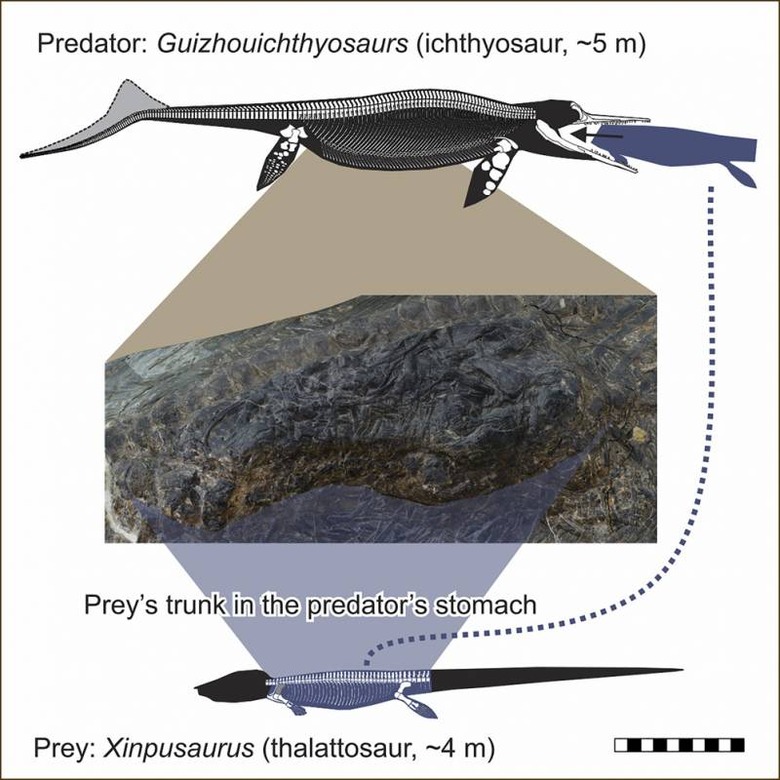Ichthyosaur Fossil Discovered With An Intact Last Meal In Its Stomach
Researchers have discovered a very interesting fossil of an Ichthyosaur that contains the fossilized remains of another large marine reptile in its stomach. Researchers believe that the Ichthyosaur swallowed its prey shortly before it died and was eventually fossilized. The discovery is the oldest known direct evidence of megapredation.
Megapredation is when a large animal eats another large animal. The fossilized remains were discovered in southwestern China in 2010. They show direct evidence of a dolphin-like Ichthyosaur that ripped a marine reptile only slightly smaller than itself to pieces and swallowed it. The larger creature then almost immediately died and was fossilized.
Ichthyosaur is a group of marine reptiles that appeared in the ocean after the Permian mass extinction 250 million years ago. These creatures had fish-like bodies similar to modern tuna, but breathe the air like dolphins and whales. Scientists believe that they may have been apex predators of the ecosystems, but there was little evidence until this fossil was discovered.

In 2010 when the fossil was first discovered, researchers noticed a large bulge of other bones within the animal's abdomen. Examination revealed the small bones as belonging to another marine reptile known as Xinpusaurus xingyiensis. The smaller creature was lizard-like in appearance with four paddling limbs.
Scientists say that they have never found articulated remains of a large reptile in the stomach of gigantic predators from the age of dinosaurs. Previously scientists had guessed from the tooth shape and jaw design that these creatures fed on large prey, but this is the first direct evidence. The larger creature was nearly 15 feet long, and the prey in its stomach was about 12 feet long.
The team says that the last meal of the larger predator appears to be the middle section of the creature from its front to back limbs. What appears to be the fossilized remains of the tail section of the prey animal was found nearby.
